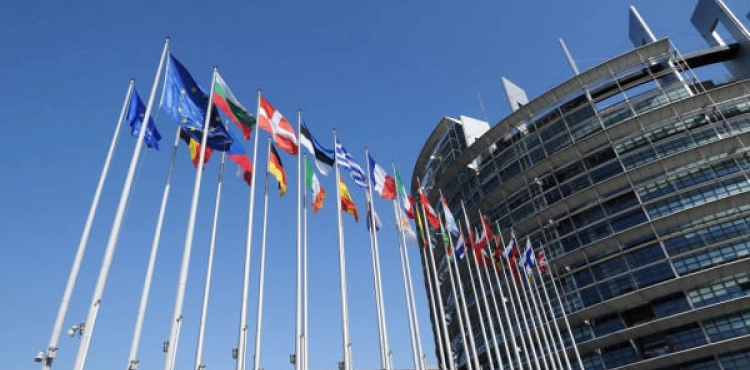After a night of intense and fruitless discussions on Tuesday, European finance ministers on Thursday should avoid a new failure by understanding a common economic response in the face of the emerging Corona virus epidemic.
A new failure will threaten the eurozone’s unity and bring the ball back to the stadium of heads of state and government who also were unable to compromise during their March 26 summit, confirming the massive rift between the countries of the North and the South.
Italian Prime Minister Giuseppe Conte told "BBC", "If we do not take this opportunity to give a new lease to the European project, the risks of failure are great."
The German chancellor also expressed hope for a settlement, while her Dutch counterpart, Mark Rotet, considered that an agreement was "possible".
The agreement is essential, especially since the European economy is heading towards a major recession in 2020.
Before the meeting, Eurogroup President Mario Shintino tweeted, "Our citizens have placed their trust in us. We must reach an agreement."
"There is no room for failure," French Finance Minister Bruno Lemerre warned before the videoconference starting at 18:00 (16:00 GMT). The meeting can continue during part of the night if the positions of the countries, especially the Netherlands, do not change.
After 16 hours of discussions, member states unanimously held the Netherlands on Wednesday morning to block the deal because of its rigidity. The French presidency has come to denounce this position, saying that the delay is "unproductive, incomprehensible and cannot continue."
And member states are taking on the Netherlands - backed by a European source from Austria, Sweden and Denmark - to block the activation of the "European Stability Mechanism" by refusing to meet Italian demands for loans that the euro zone bailout fund could give to countries in difficulty.
The ministers suggest that the "European Stability Mechanism" established in 2012 during the debt crisis and funded by member states, be able to lend countries 2 percent of their gross domestic product, equivalent to 240 billion euros for the entire euro area.
Before the meeting, Dutch Finance Minister Vobke Hoekstra announced Thursday, "There is a lot to discuss, such as the European Stability Mechanism."
"But if we need more time, we will take it," he added to public broadcaster NOS TV.
Former European Commission President Jean-Claude Juncker called the Netherlands´ blocking "an irresponsible position" in an interview with the French newspaper "Liberation".
He believed that "the European mechanism of stability will not be sufficient to move" the economies of Europe, which will need a joint ability to borrow through the issuance of "Corona Bonds."
These bonds are another thorny file to be discussed during the meeting.
The countries most affected by the epidemic, especially Italy, are demanding that they obtain financing from the common debt in the form of Eurobonds, also called "Corona Bonds".
And identical sources said that among these countries Spain, France, Greece, Malta, Luxembourg and Ireland.
The idea of ​​sharing debts is a red line in Berlin and The Hague, which refuse to join a common path with the southern countries that suffer from large indebtedness and are accused of being lenient in their management.
German Minister Olaf Schultz said that recovery is possible "with very traditional tools" that exist mainly "like the European Union budget".
The other two axes of the Europeans to confront the epidemic seem to achieve greater agreement, namely the creation of a guarantee fund for the European Investment Bank that allows the release of up to two hundred billion euros for companies, and a guarantee of one hundred billion euros for the European Commission to support national plans for underemployment.
In an apparent attempt to exert pressure on member states, European Central Bank President Christine Lagarde wrote in an article in the French newspaper Le Monde, "It is necessary that the budgetary crackdown on this crisis be strong enough in the entire eurozone."
"If not all countries succeed in restoring their activity, other countries will suffer from the effects of that."












